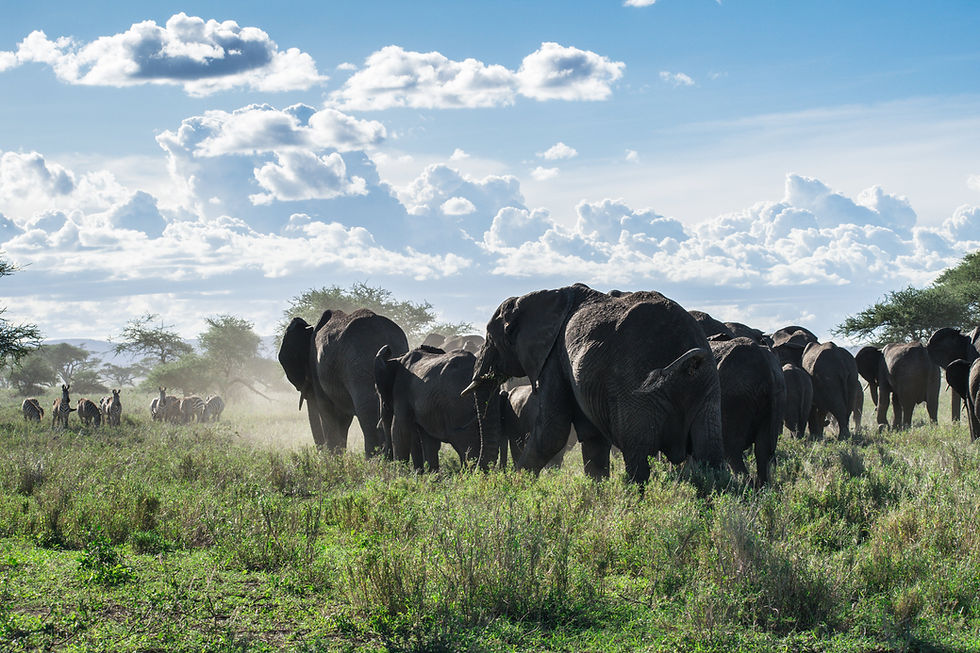

The RareEARTH Sanctuaries
A Worth International Foundation Initiative For The House Of Chinhara
.png)
Footsteps Of The Ancients
The earth is a silent witness. Legends and history unfold across the lands leaving the footprints of the ages upon the soil. Antediluvian worlds collide in a whirl of historical contexts bringing hope and new beginnings to humanity.
For centuries, the Zimbabwean wilderness parks have been home to the rarest of species. But the protective veil providing sanctuary to the precious animals and resources is now under severe threat.
The RareEarth foundation is anchored by the spectacular House Of Chinhara hotels, which are to be developed and built within the National Park of the UNESCO world heritage site of Victoria Falls.
Our quest is to protect the thousands of acres of wilderness and to build an internationally acclaimed and recognised Wilderness Sanctuary by partnering with local communities, to educate, bring skills and employment to hundreds of male and female rangers.
The RareEarth Foundation will create and build permanent outposts and tent-based field units, provide patrol vehicles, afford fuel supply and maintenance to the vehicles, provide aerial surveillance, tracker dogs, and all that is required to protect this beautiful environment from poachers, climatic change, and industrial related environmental destruction for generations to come.
To further envision this project a comprehensive and truly magnificent OPUS box set and film has been produced. The OPUS entitled One Dream One Vision, chronicles the ancient history and legacy of Zimbabwe and the majestic cultural heritage of this once famed kingdom.
The RareEARTH HAVEN
WHY IT MATTERS FOR ELEPHANTS
“African elephant populations have fallen from an estimated 12 million a century ago to some 400,000. In recent years, at least 20,000 elephants have been killed in Africa each year for their tusks. African forest elephants have been the worst hit. Their populations declined by 62% between 2002-2011 and they have lost 30% of their geographical range, with African savanna elephants declining by 30% between 2007-2014. This dramatic decline has continued and even accelerated with cumulative losses of up to 90% in some landscapes between 2011 and 2015. Today, the greatest threat to African elephants is wildlife crime, primarily poaching for the illegal ivory trade, while the greatest threat to Asian elephants is habitat loss, which results in human-elephant conflict. WWF has advocated for an end to commercial elephant ivory sales in the US and other major markets like China, Thailand, and Hong Kong as the most effective and efficient solution to end this illegal ivory trade.” WWF
WHY IT MATTERS FOR LIONS
“Affected by: Habitat loss and fragmentation, Illegal wildlife trade and Human wildlife conflict.
Powerful and majestic, the king of the beasts has no natural predators. But unthinkably, African lion numbers have plummeted by over 40% in the last three generations, due to loss of living space and conflict with people.
Lions are the most sociable of all big cats. They live in groups called prides, which usually consist of related females and their cubs. Dominant males, with their flowing manes (a sign of virility), fight to maintain breeding rights.
Three-quarters of African lion populations are in decline. With only around 20,000 in the wild, they’re now officially classified as ‘vulnerable’. WWF
WHY IT MATTERS FOR RHINOS
“Rhinos are facing another fight for their very survival. Last century, they were hunted and poached to the brink of extinction. A global conservation campaign gave them a lifeline, but their future is once again hanging by a thread. Backed by organised criminal networks, poachers are using 21st century weapons and technology to supply the growing demand for rhino horn, primarily in Vietnam.” WWF
Akashinga:
The Brave Ones
National Geographic
Get to Know Us
RareEARTH Sanctuaries & Foundation will make a significant impact in Africa's fight against extinction by supporting initiatives like AKASHINGA. Akashinga, founded in Zimbabwe by Damien Mander, a former Australian special forces soldier and anti-poaching leader, is a game-changer. Composed of women rangers from marginalized backgrounds, Akashinga is redefining conservation by prioritizing community involvement over armed conflict. This innovative approach not only protects animals but also empowers communities and transforms the lives of its members. The documentary "AKASHINGA: THE BRAVE ONES," executive produced by James Cameron and directed by Maria Wilhelm, showcases the bravery, conservation efforts, and unconventional strategies that are driving positive change in wildlife protection.
Wildlife poaching is a devastating crime that threatens the very fabric of our natural world. The use of poisons such as cyanide has become a deadly tool for poachers, enabling them to kill numerous animals without the need for firearms or the support of criminal networks. This method not only endangers targeted species like elephants but also drives endangered vultures toward extinction, impacting the delicate balance of ecosystems.
The Threatened Ones - RareEARTH Foundation
The Threatened Ones
In Zimbabwe, where an estimated 85,000 elephants live, the fight to save vulnerable species isn't just a full-time job—it's a lifeline.
RareEARTH Sanctuaries & Foundation proudly supports and campaigns for initiatives such as the Akashinga, an all-female anti-poaching unit in former trophy hunting reserves. These highly-trained women, part of the International Anti-Poaching Foundation, protect wildlife from cyanide poisoning and traps. Despite past challenges, Akashinga members are dedicated stewards of the land. Founder Damien Mander highlights their success, with hundreds of arrests and an 80% reduction in elephant poaching since 2017. RareEARTH Foundation stands by Akashinga's mission to preserve Africa's wildlife.
